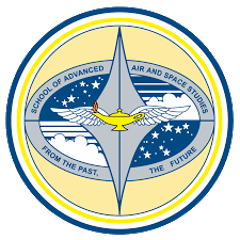Part 2 of 2 Parts (Please read Part 1 first)
Lieutenant General John Shaw is the commander of the Combined Force Space Component Command as well as the commander of the U.S. Space Force’s Space Operations Component Command. He said that when the Pentagon first began to build satellite systems for command and control, they built them as if space was a benign domain. But potential enemies were quick to respond to the U.S. growing reliance on space for expanding U.S. military capabilities. This, in turn, led the administration of President Trump to create the U.S. Space Force as a separate military branch in 2019.
Now that Joe Biden has been declared to be the next President of the U.S., that raises the question of how much U.S. space policy may change under his administration. Neither Townsend nor Shaw raised this issue. Saadia Pekkanen is the co-director of the Space Policy and Research Center. She said that Biden was likely to continue current space policies. She said that “If you are imagining that there might be a radical shift in space policy, I don’t quite see that.”
Senator Maria Cantwell, D-Wash., pointed out that Congress still has to approve a significant piece of legislation dealing with space policy. She said, “I can’t promise you that it’s going to get done in a lame-duck session of Congress, but if it doesn’t, I will guarantee you it will be done in the very early part of 2021.” Cantwell is the ranking member of the Senate Commers, Science and Transportation Committee. She said that the authorization bill would smooth the way for NASA to increase its support of landing systems that will be able to put astronauts on the Moon’s surface. That could include the Blue Origin landing system under development in collaboration with industry partners Lockheed Martin and Northrop Grumman.
The senator said that Blue Origin which is based in Kent, Washington has become a very important player the space industry in Washington state. It accounts for almost two billion dollars of the state’s economic activity annually. Other prominent members of Washington’s space industry include SpaceX which is constructing its fleet of Starlink satellites at a facility in Redmond, Washington; and Aerojet Rocketdyne’s operation, also in Redmond, is building rocket thrusters for future NASA missions. Cantwell said, “It’s not surprising that all of those efforts have led recently to our state being called ‘the Silicon Valley of Space'.”
With respect to future space exploration, the NASA Artemis program to put astronauts on the Moon in the near future is one of the most ambitious. The Trump administration has been putting pressure on the NASA to carry out the first crewed landing on the Moon by 2024. Cantwell commented that this date might slip. She said, “We’re very excited about Artemis in general. … There’s not always consensus about when and what time frame we should have to meet this Artemis goal. Hitting the 2024 deadline would require an enormous amount of resources.”
Wendy Whitman Cobb is an associate professor of strategy and security studies at the U.S. Air Force School of Advanced Air and Space Studies. She said that the Artemis program was likely to move forward even though the White House has changed hands. She did add that the timetable might change. Cobb said, “A Biden administration might be a little bit better at letting that go a little bit. … If anything, I think we might see a little bit more emphasis on the commercial capabilities and commercialization of space on the part of NASA. That could be, just because there’s that natural sort of flow over from Vice President Biden’s experience with the Obama administration.”
